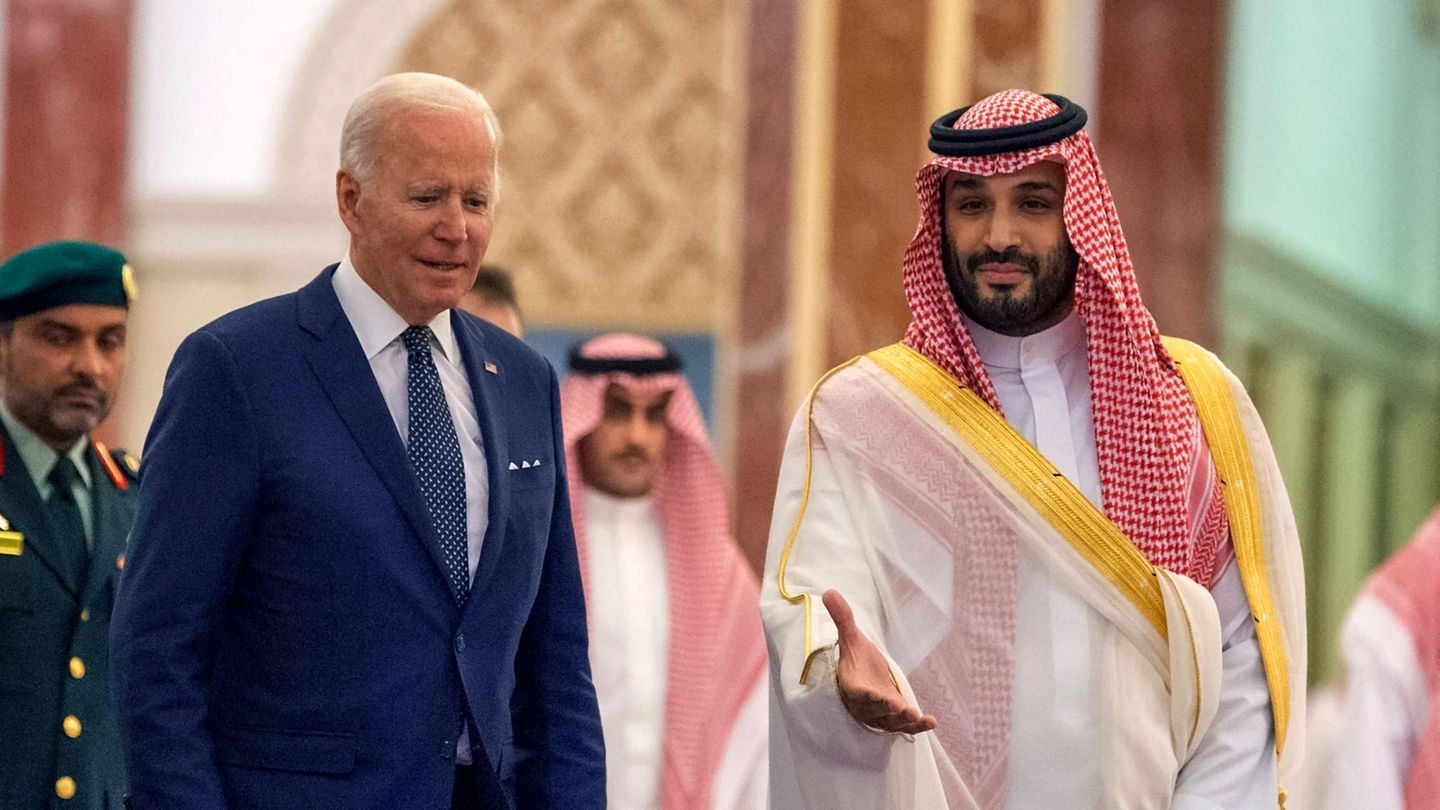Because the oil-producing countries are reducing production, the price of petrol is rising and so is inflation. In the USA, President Joe Biden therefore fears the consequences for the upcoming election – he wants to reassess the relationship with Saudi Arabia.
US President Joe Biden has announced the consequences of the Opec+ states’ controversial decision to cut oil production. He won’t say exactly what he has in mind, “but that will have consequences,” Biden said in a CNN interview. National Security Council spokesman John Kirby said the relationship with the Saudi-led oil states was being “reassessed”.
Diplomatic slap in the face
The oil-exporting countries united in the Opec+ group agreed last week on a significant reduction in production in November. The move was widely seen as a diplomatic slap in the face to the US, which had explicitly opposed it.
The Opec+ group consists of the Opec countries led by Saudi Arabia and ten other partner countries, above all Russia. They had already cut production from the beginning of October, but only slightly by 100,000 barrels per day. For November, they have now set a limit of two million barrels per day.
This is the strongest reduction since 2020 at the beginning of the Corona crisis, the alliance wants to support the price. With Russia’s attack on Ukraine, the price of oil had risen, reaching almost $140 (euro) per barrel (159 litres). Since then it had fallen again.
Gas price is Biden’s problem
The high oil prices have led to high gasoline prices in the USA, which are partly responsible for the high inflation in the country. This is hurting Biden and his Democratic Party ahead of November’s congressional elections.
Kirby added that Biden will work with Congress “to think about how the relationship (with Saudi Arabia) should look going forward.” The US Parliament had previously called for the cessation of all cooperation with Riyadh, since Saudi Arabia had apparently sided with Russia.
Saudi Arabia defends the planned subsidy cut. The decision was made for “purely economic” reasons, said Saudi Foreign Minister Faisal bin Farhan. “The Opec+ countries have acted responsibly and made the right decision.” It is about the stability of the market. Faisal bin Farhan said relations with the US support security and stability in the region. The military cooperation between Riyadh and Washington serves the interests of both.
US and Saudis: allies for decades
Despite major cultural differences, Saudi Arabia is the United States’ most important ally in the Middle East. During the Cold War, the Soviet Union was the common enemy, after 2001 both worked together to fight Islamist terrorism. Above all, however, the USA supports Saudi Arabia as a counterweight to Iran.
Source: Stern
David William is a talented author who has made a name for himself in the world of writing. He is a professional author who writes on a wide range of topics, from general interest to opinion news. David is currently working as a writer at 24 hours worlds where he brings his unique perspective and in-depth research to his articles, making them both informative and engaging.




